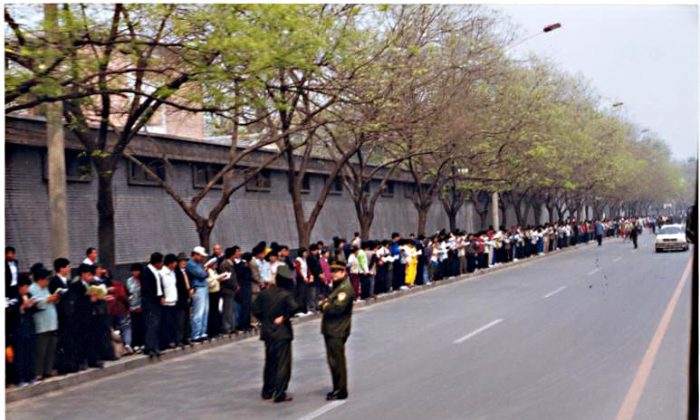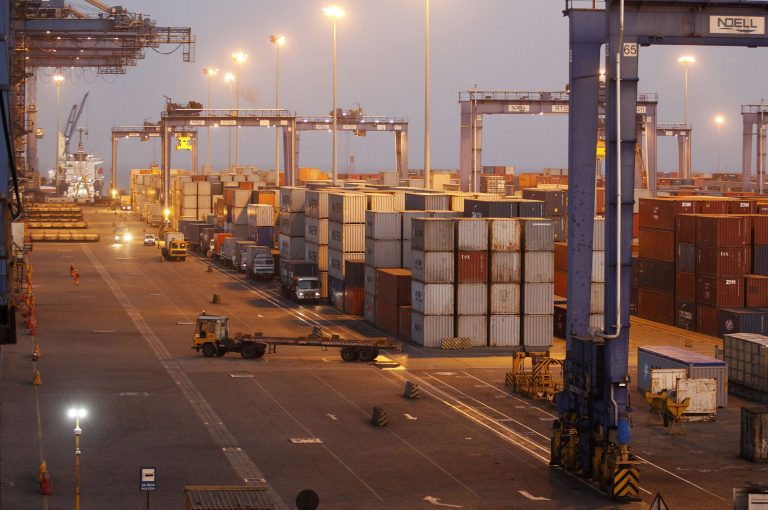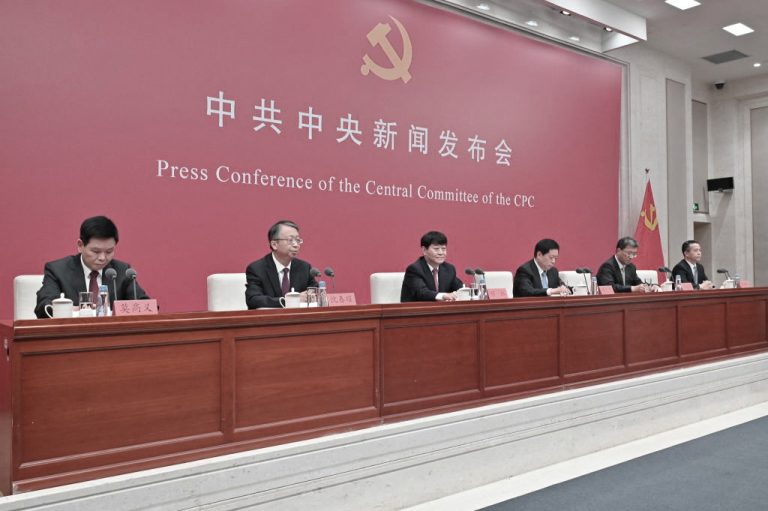Most people are familiar with the 1989 Tiananmen Square Massacre, when thousands of Chinese college students demonstrating for democratic rights and clean government were slaughtered en masse by the People’s Liberation Army in the center of Beijing. Widely seen as a turning point in China’s “reform and opening up” era, the bloodshed on June 4 reminded the world how far the Chinese Communist Party was willing to go in order to safeguard its power.
A decade later, on April 25, 1999, a second mass demonstration occurred in Beijing. This time, it was a silent appeal by over 10,000 practitioners of Falun Gong in front of Zhongnanhai, the government compound that was the headquarters of the Communist Party.
Falun Gong was one of the many spiritual practices known as qigong that were popular in China at the time. Though at first welcomed by the Chinese government, its traditional beliefs and the large numbers of people practicing it — as many as 70-100 million by 1998 — sparked concern from the authoritarian leadership of the Communist Party.
The April 25 appeal occurred just months before Party leader Jiang Zemin would declare Falun Gong a “heretical religion” and launch a brutal persecution that is still going on today.

During the 1990s, tens of millions of people practiced Falun Gong in China. (Image: via Swoop films Screenshot / Vimeo)
Silent appeal
Taught in 1992, Falun Gong differentiated itself from other qigongs by teaching the importance of moral cultivation, in line with ancient Chinese traditions. Falun Gong was free to learn, had no official memberships, and did not divide its adherents by rank. Various state bodies praised the practice for improving health and public morality.
Success
You are now signed up for our newsletter
Success
Check your email to complete sign up
But as the number of Falun Gong practitioners grew, some in the communist leadership began to see the community as a threat, despite the fact that Falun Gong teachings were non-political and stressed the importance of being good, law-abiding citizens.
Luo Gan, who headed the Party’s security agencies, took a hardline stance. In 1997 and 1998, the Ministry of Public Security launched police investigations into Falun Gong, but could not find any evidence to suggest that it was a “heretical religion” that should be banned.
When Qiao Shi, then-head of the National People’s Congress, had his own investigation conducted, the study found that “Falun Gong has hundreds of benefits for the Chinese people and China, and does not have one single bad effect.”
Pressure continued to mount, with state propaganda denigrating Falun Gong. On April 23, 1999, riot police beat up and arrested 45 Falun Gong practitioners in the city of Tianjin for protesting an article published in a university newspaper that slandered the practice.

Falun Gong practitioners appeal before Zhongnanhai on April 25, 1999. (Minghui.org)
The police told practitioners that they had received their instructions from Beijing, and that if they wanted to appeal, they would have to go to the central authorities.
Beijing was home to hundreds of thousands of Falun Gong practitioners, and on April 25, over 10,000 of them gathered on Fuyou Street in front of the Party headquarters of Zhongnanhai.
Police at the scene noted the cooperative nature of the demonstrators, as well as their calmness. They held no signs and stayed silent rather than chant slogans. Zhu Rongji, who was then China’s premier, received the crowd, and invited several practitioners into Zhongnanhai.
A point of no return
Premier Zhu, one of many officials who supported Falun Gong, assured his guests that no policies were in place to ban or harm the spiritual practice. Soon after the brief meeting, the protesters dispersed.
Though the protest was calm and disbanded that evening, the events of April 25, like Tiananmen a decade before it, would have grave implications for China’s future.
On April 26, Jiang Zemin called an emergency meeting of the Chinese leadership, claiming that if the Party failed to act against Falun Gong, it would cause its own downfall. In June, he ordered Luo Gan, his head of security, to create a special task force to handle Falun Gong and make preparations to “defeat” it.

In June 1999, Jiang Zemin ordered his head of security Luo Gan to create a special task force to ‘defeat’ Falun Gong. (Image: The Epoch Times)
On the night of July 20, 1999, police leapt into action, arresting thousands of Falun Gong practitioners in Beijing and around the country. The roundups, followed by a July 22 directive banning Falun Gong, marked the start of a decades-long campaign that would see millions of victims, and a death toll that is still unknown.
The persecution of Falun Gong, rationalized using the ideology of the Communist Party, also gave Jiang a pretext to promote his personal allies while continuing to sideline those who opposed his policies.
Though Jiang stepped down from his position as general secretary in the early 2000s, the political and financial resources mobilized to suppress Falun Gong played a key role in helping him preserve his influence in Chinese politics.
In addition, the treatment of Falun Gong created a dangerous political precedent. Followers of other Chinese faiths, including Christians, Tibetans, and Uyghurs, have faced ever-increasing persecution in recent years.
Follow us on Twitter or subscribe to our weekly email







